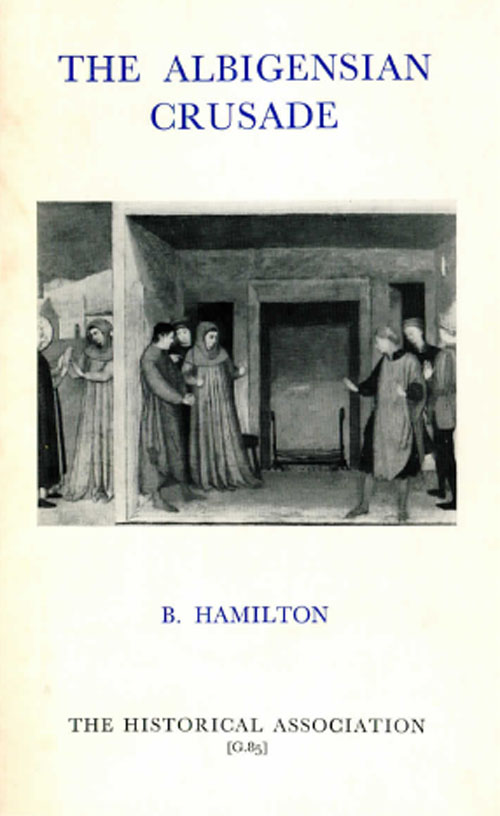The Albigensian Crusade
Classic Pamphlet

The Campaign to eliminate the Cathars
At the time of the First Crusade southern France was strongly Catholic: the army led by Raymond IV of Toulouse was the largest single force to take part in the expedition and was recruited from all classes. Yet eighty years later the Count's grandson, Raymond V, sent this appeal form help to the Chapter-General of Cîteaux:
‘The disease of heresy has grown so strong in my lands that almost all those who practice it think they are serving God.... The priesthood is corrupted with heresy, ancient churches, once held in esteem, are not used for divine worship but have fallen into ruins, baptism is denied, the Mass is held in detestation, confession is scorned... and, what is worse, the doctrine of two principles is taught'.
This heresy was Catharism, but it is not easy to determine when it first entered southern France. Groups of ‘Manicheans' who are reported to have been active in Languedoc in the early eleventh century may or may not have been dualists, but there is certainly no evidence of any direct filiations between them and the later Cathar communities. The idiosyncratic, anti-clerical teachings of Peter Burys and Henry of Le Mans which were disseminated quite widely in parts of southern France in the first half of the twelfth century may have created a milieu sympathetic to the reception of Catharism. That faith was established there by 1145 when St. Bernard of Clairvaux preached in the Toulousain, for the Ariani who he encountered were almost certainly moderate dualist and by 1163 Alexander III found it necessary to condemn the damnable heresy which had spread from Toulouse to many surrounding regions.
This resource is FREE for Historian HA Members.
Non HA Members can get instant access for £3.49

